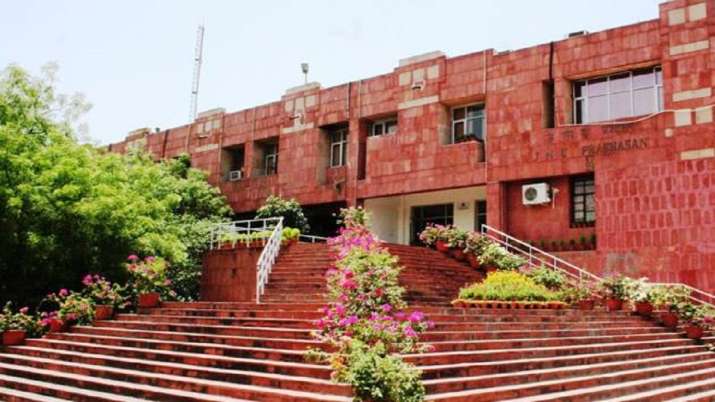
Jawaharlal Nehru University (JNU) is not the place to pursue political aspirations, JNU Vice Chancellor Shantisree D Pandit said on Wednesday.
Stating that JNU is not the place to pursue political aspirations, the Vice Chancellor said that all those who did politics on the campus are in jail.
Vice-Chancellor Shantisree Dhulipudi Pandit said that 90 per cent of the students in JNU are non-political and only 10 per cent are “troublemakers” who think they can build their political career in the university.
In an interview with PTI, Pandit, when asked about the clashes in JNU in recent days, said that it is a politically active campus but the university is not a place for violence and those who want to become politicians should go out. Election should be fought. ,
“Ninety percent of the students are apolitical. Only 10 percent are troublemakers. They feel that their political career can be made in JNU.
Pandit said, “JNU is the graveyard of political career. You know what happened last time, those who did (such) politics, they are all in jail.”
“Why are you wasting your time? If you want to be a politician then go out and contest elections. Who is stopping you? India is a free country. You come here to study, you come here to learn You are all coming from marginalized families. Your family is up to you to get a good job and move out.”
Several JNU students and alumni, including Sharjeel Imam, Umar Khalid, Natasha Narwal and Devangana Kalita, were arrested under the stringent Unlawful Activities (Prevention) Act (UAPA) for their alleged involvement in the 2020 Delhi riots conspiracy case .
Natasha Narwal and Devangana Kalita were later released on bail while Umar Khalid and Sharjeel Imam are still in jail.
Kanhaiya Kumar and Khalid, who were then studying in JNU, were arrested by the Delhi Police in 2016 for their alleged involvement in a sedition case over a campus protest. He was later released on bail. Kumar is now in the Congress party.
In recent years, the university has seen several instances of violence involving left-affiliated student organizations and the Akhil Bharatiya Vidyarthi Parishad (ABVP), the student wing of the RSS.
In April this year, two groups of students allegedly clashed with each other over serving non-vegetarian food on Ram Navami in a mess at the Kaveri hostel.
On January 5, 2020, a mob of masked men stormed the campus and targeted students in three hostels, scuffled with sticks, stones and iron rods, hit inmates and broke windows, furniture and personal belongings.
At least 28 people, including JNU Students’ Union president Aishe Ghosh, were injured amid turmoil on the campus for nearly two hours. Pandit urged the students to engage in active politics and debate but did not resort to violence.
“Do active politics, argue and talk but don’t kill each other. Earlier there was no such opposition. But now, (they cause conflict) because the two groups are equally strong,” she said.
“The leaders of both the groups think that they can become the Prime Minister of India. The PM was a pracharak not a student of JNU. Ambitions are good but JNU is not a place for violence. JNU is a research university. I am not saying that. You don’t want to argue… Argue, discuss but don’t kill each other.”
,With inputs from PTI,
read also , Rajasthan: BJP state president Satish Poonia attacked with a knife, leader safe
read also , Mahua Moitra Devi Kali remark: Case registered against TMC MP for ‘meat-eating’ remark